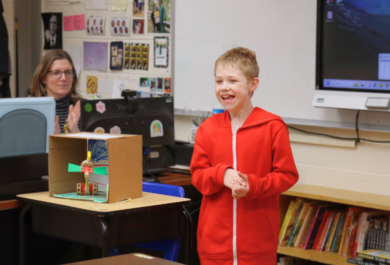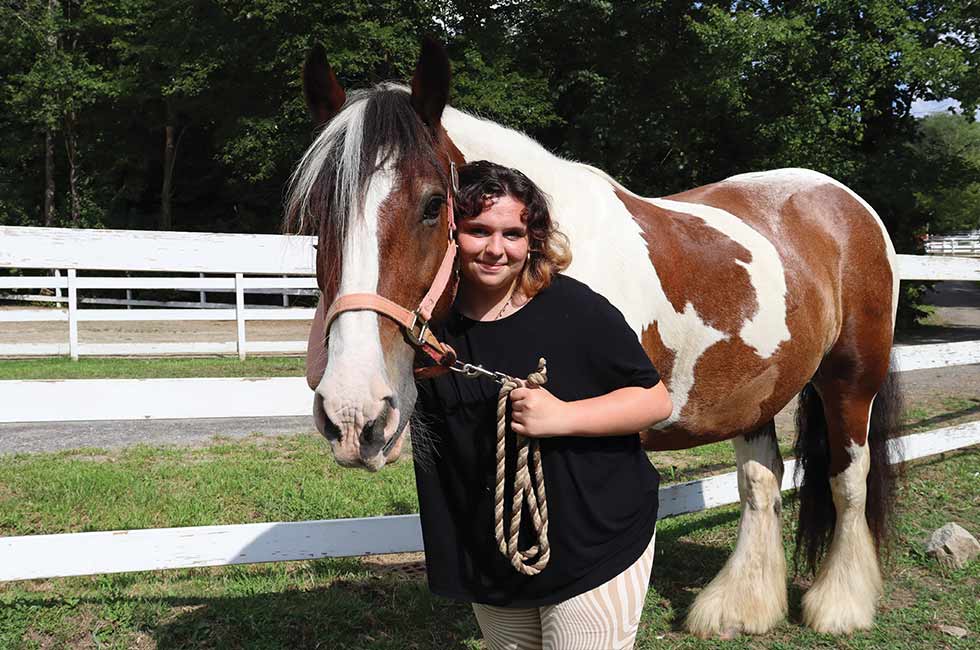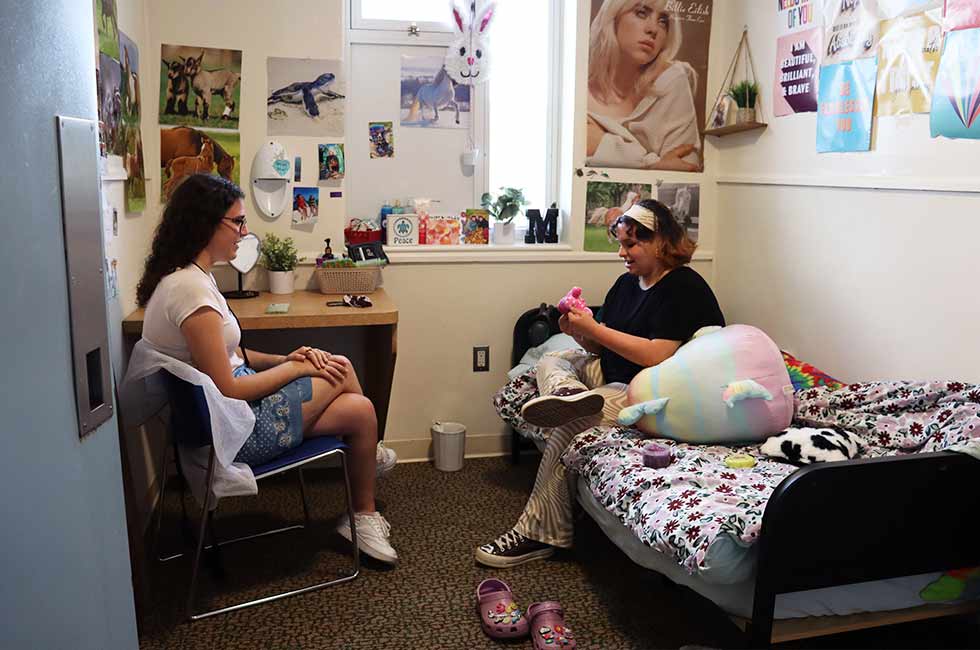Announcements


Green Chimneys student Mady with horse Noah
As a child, did you ever want to stay up just a little bit later but were told to go to bed? Were you disappointed when you had to go directly home after school instead of hanging out with friends? Were you upset after your team lost a game or perhaps you received a lower grade on a test?
For some children, coping with limitations or disappointments can seem unbearable. A simple reminder of bedtime from a parent can ignite catastrophizing, a situation in which feelings of rejection, sadness, anger, or hopelessness are intensified. What may be perceived as dramatized behaviors or rule refusal is actually an acute reactivation of previous experiences involving invalidation, inadequacy, or anger. In these cases, the child perseverates on an issue, becoming focused solely on worst-case scenarios. The child may simply want to flee the situation; some may even grapple with suicidal ideation.
Catastrophizing is often a symptom of an underlying mental health illness such as depression, anxiety, or post-traumatic stress disorder. For youth unable to self-soothe or regulate their emotions, it means they have difficulty managing subsequent behaviors, too.
For Maddy, life as a pre-teen had become unmanageable. The oldest of two children, Maddy is admired by her parents for her humor, intelligence, and kindness. Despite her loving family life, Maddy began to struggle at the age of twelve. School had become a chore and Maddy’s parents sought medical interventions and mental health support, but her emotional dysregulation became frequent. At home, even with the support of family, Maddy was in crisis and began verbalizing suicidal thoughts with regularity. After her last hospitalization, Maddy’s parents and therapist discussed comprehensive therapeutic support, including the benefits of a residential treatment center.
By March of 2022, Maddy was enrolled at Green Chimneys. It was a big step for the entire family as Maddy moved into her dorm.
“It was intimidating at first,” explains Maddy. “I was excited to meet the animals, but I was far from home. I wondered if the other kids would like me. Would I like them? Then I started getting to know other kids and built relationships with staff.”
A few weeks later, Maddy turned 13. She was settling into school and residential life at Green Chimneys. She formed connections with several horses but especially Albus, a Spotted Draft cross gelding that joined the herd around the time of Maddy’s enrollment. In class, Maddy began to excel. Teacher Gui Martins recognized her abilities and designated Maddy the class note-taker. She quickly began to participate in lessons, completing all assignments, and willingly helping her peers with their work.

Social worker Lee Ann Genussa and Maddy in her dorm room
Over the next several months, Maddy invested in her treatment. She formed a great rapport with her social worker and took therapy sessions seriously; she committed to doing the work and responded well to talk therapy. Using Dialectical Behavioral Therapy (DBT), social worker Lee Ann Genussa and Maddy reframed her experiences from the past and gained new insights into the sequence of thoughts, feelings, and behaviors.
Maddy has learned that it’s okay to hold space for conflicting feelings, and can articulate independently that a situation is both sad and good at the same time.
“I can still have the same feelings,” Maddy explains in reference to life before Green Chimneys. “But now I try to pause and tap into my rational side and think through why I am feeling this way, and how I might choose to deal with it.”
For Laura and Nick Osofsky, Maddy’s parents, being involved in Maddy’s treatment has been critical. They remain in constant contact with the treatment team and participate in trainings provided by staff. They even seek input on strategies applied at home and provide great perspectives and communication. And they are mindful to involve their youngest in family therapy sessions to foster understanding while also supporting Maddy and brother Alex’s great sibling connection.
At the start of the school year, Maddy entered 8th grade on the heels of an active summer full of classes, therapy, outings, and fun with friends and family. Along with her parents and treatment team, Maddy has set new goals for the school year. She is excited at the prospect of returning to her home district, but she also understands there is more work to do at Green Chimneys. With the help of residential life staff, clinicians, and her teachers, Maddy will continue working on interpersonal effectiveness, building and maintaining healthy relationships, and strengthening self-esteem.
All along, Maddy has continued to explore her passions including horses, writing, and music (especially Coldplay—the old stuff). She enjoys spending her free time with animals, being with family and friends, helping people, and most importantly, practicing skincare. Maddy’s dorm décor is an ongoing colorful expression of self. Photos of animals and loved ones are posted throughout her room, and sensory-rich Squishmallow toys, jars of purple slime, and a fuzzy cow-print pillow accent her desk and bed. And a wall displays a series of powerful affirmations: The world needs more of you. Will it be easy? Nope. Will it be worth it? Absolutely. Be fearlessly you.
Staff celebrate all of the progress Maddy has already achieved and reinforce the strengths she shares with the Green Chimneys community, including her honesty, altruism, and intelligence. The world, indeed, needs more of Maddy, and we are so glad that she is a part of Green Chimneys.
Learn more about residential treatment and clinical services

Crowned the best for falconry in medieval times, gyrfalcons were once reserved for kings. As the largest falcon in the world, with exquisite plumage ranging from bright white to deep charcoal, gyrs are revered for their powerful skill of flight. Their long wings make hunting waterfowl from 3,000-feet-high a feasible and fantastical feat. This falcon was flown in the sport of falconry for several years.